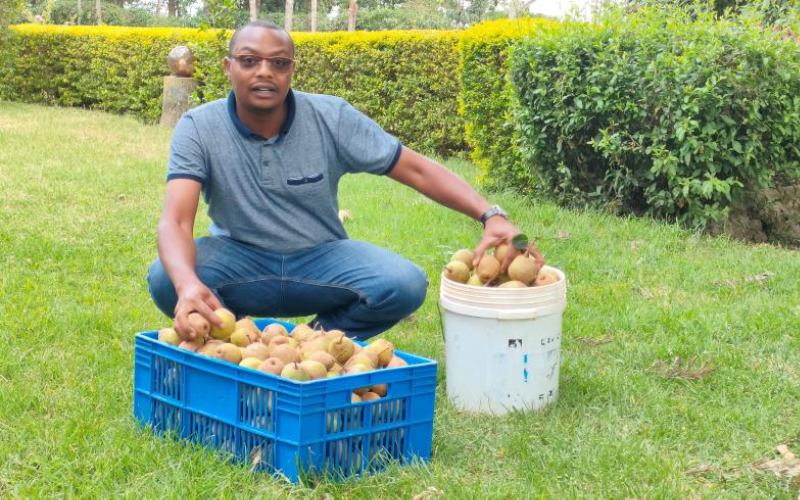×
The Standard e-Paper
Kenya’s Boldest Voice

Onesmus Njoroge with harvested pears grown in his 10 acre farm located Limuru, Kiambu County. [Nanjinia Wamuswa, Standard]
Hundreds of branches bend under the weight of pears fruits. Some are mature ready for harvesting while others just young fruits.